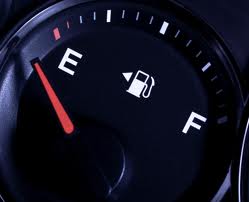This article concentrates on fuel-saving methods that work. It is based on a combination of common sense, significant testing, and experience. If you haven’t already done so, we recommend you read our earlier blog entry, Fuel Economy Part 1 – What Doesn’t Work, Our View by clicking HERE.
General Vehicle Maintenance
If you’re completely disillusioned with magic fuel pills, magnets, and other fuel-saving devices that didn’t work (as expected) or the miles per gallon (MPG) on your vehicle has dramatically reduced, don’t lose hope. Vehicle maintenance plays a crucial role in fuel economy. This is basic but valuable information.
Firstly, check your tire pressure. They should be at the correct pressure for your vehicle, assuming you are using the recommended size wheels and tyres.
If you are serious about saving every ounce of fuel you can, consider changing the tire brand to a good-quality, low-resistance tyre. The lower the resistance, the less the engine has to work. As a result, less fuel is consumed.
Ensure your vehicle is regularly serviced. You would be surprised by the difference a clean air filter and quality oil will make. It also is possible to change the oil for a lower viscosity, which helps reduce “drag” on the moving components, but this should not be done to the detriment of engine protection, which is the primary function of the oil.
Engine Cleaning
Accumulating deposits on parts such as fuel injectors, exhaust gas recirculation (EGR) systems, plenum runners, throttle bodies, pistons, and intake valves significantly impairs engine efficiency. The result is invariably power loss, rough idle, and reduced fuel economy. However, cutting through the tenacious fuel deposits is no ordinary task, and only the best cleaners make a notable difference. Therefore, invest in a high-quality fuel system and engine cleaner.
Remarkably, most vehicle owners wait until they encounter running problems or very poor MPG before investing in fuel cleaners or conditioners. We have seen significant MPG increases from simply cleaning the fuel injectors and removing carbon build-up.
Oil Additives
Although we consider this a bit of a minefield, we would be remiss if we didn’t inform you that we have discovered that there are small but tangible gains to be had from oil additives. Gains are not just from reducing friction but also from restoring engine compression by removing deposits from piston rings, cylinder bores, etc.
These are safe gains, we might add, but please tread with caution as it is true that there is a lot of rubbish on the market. Do your research, but in the meantime, if you require a recommendation for a particular vehicle/application, then please don’t hesitate to contact us.
Engine Chipping / Re-mapping / ECU Re-flash / Tuning Modules
The fourth way of improving MPG is by remapping or chipping your vehicle. This is achieved by altering the fuel and/or ignition timing and other parameters within the engine control unit (ECU) or using a piggyback tuning module.
Although results can vary widely, this can be a very effective and safe way of improving MPG if you know where to go and who to trust. Depending on the vehicle and the mapping quality, improvements of up to five percent can be achieved.
Driving Style
For our tips on how your driving style can improve fuel economy click HERE.



 categories
categories